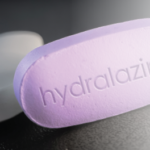Drugs Under Development
Current drugs and those under development target the complement system, Dr. Wu says. “Naturally, we’re interested in looking at the place for these medications as potential treatments for ANCA-associated vasculitis.” These include eculizumab, which was developed by Alexion and works by selectively inhibiting complement component C5, and avacopan, an orally administered drug candidate developed by ChemoCentryx that inhibits the C5a receptor.
“We are excited about the direction we are going, with ongoing projects to longitudinally follow a group of ANCA-associated vasculitis patients with a spectrum of disease manifestations to see if complement activation can reliably predict or correlate with disease activity, disease remission and treatment response,” Dr. Wu says.
The clinical implications aren’t clear yet. “We need to better understand the role of complement activation in the emergence of disease using mechanistic studies. We know it’s important, but don’t fully understand its clinical applications yet.” she says. “Can we predict which patients might benefit from a particular treatment? What is on the horizon is answering if complement-targeting therapy would be helpful to all ANCA-associated vasculitis patients, or just a subset, and could that subset be identified sooner.”
Larry Beresford is a medical journalist in Oakland, Calif.
References
- Wu EY, McInnis EA, Suavet SB, et al. Measuring circulating complement activation products in myeloperoxidase and proteinase 3 antineutrophil cytoplasmic antibody vasculitis. Arthritis Rheumatol. 2019 Nov;71(11):1894–1903.
- Jennette JC, Xiao H, Falk R, et al. Experimental models of vasculitis and glomerulonephritis induced by antineutrophil cytoplasmic autoantibodies. Contrib Nephrol. 2011;169:211–220.
- Chen M, Daha MR, Kallenberg CGM. The complement system in systemic autoimmune disease. J Autoimmun. 2010 May;34(3):J276–J286.

